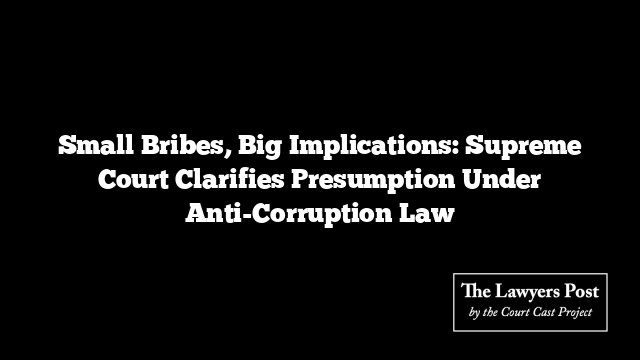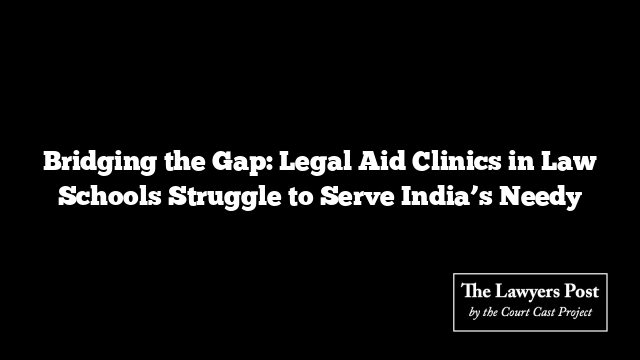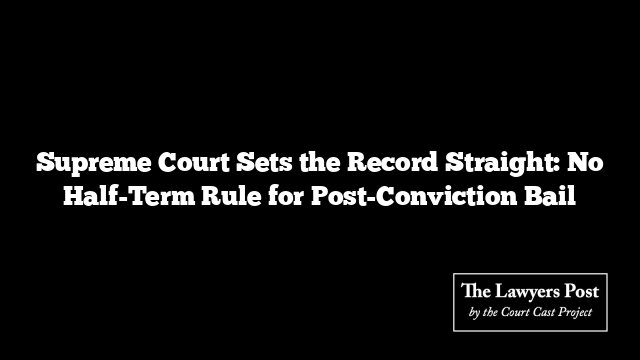In a ruling that emphasizes the principle over the magnitude of corruption, the Supreme Court convicted a public servant for accepting a bribe of ₹2,000, clarifying that the amount of a bribe need not be substantial to presume corrupt intent under Section 20 of the Prevention of Corruption Act (PCA), 1988.
The bench, comprising the Chief Justice and Justices Sanjay Kumar and R. Mahadevan, reviewed an appeal against a High Court acquittal in a case involving a treasury officer accused of demanding a bribe to process a school teacher’s leave salary. The officer, originally convicted by a trial court, had been acquitted on the grounds that the work in question had already been completed before the alleged bribe demand.
However, the Supreme Court reinstated the conviction, stating that the two essential elements of bribery—demand and acceptance—had been proven. The Court highlighted that even if the task was technically complete, withholding issuance of the cheque amounted to leveraging public office for personal gain.
Key Observations
- Value vs. Intent: The Court emphasized that the value of the gratification must be assessed in proportion to the act performed or promised. Even a seemingly trivial amount can carry significant weight if tied to the misuse of authority.
- Presumption of Corruption: Under Section 20 of the PCA, once undue advantage is proven, the burden shifts to the accused to demonstrate innocence. This presumption applies irrespective of the size of the bribe.
- Court’s Discretion on Triviality: Section 20(3) allows courts to decline the presumption of corruption if the gratification is considered trivial. However, the Supreme Court clarified that this discretion is an exception, not the rule, and should be applied judiciously.
- High Court Error: The Supreme Court found the High Court’s reliance on precedent misplaced, observing that in the present case, the bribe demand was substantiated by evidence, including the timing of the cheque’s release and a successful sting operation.
Broader Implications
The ruling underscores that corruption cannot be trivialized based on the amount involved. It sends a clear message that the misuse of public office, even for small personal gains, undermines trust and will not be tolerated. By placing the onus on the accused under Section 20, the Court reaffirmed the law’s intent to hold public servants to the highest standards of accountability.
The judgment reinstated the trial court’s conviction, rejecting the High Court’s acquittal and reaffirming the principle that even minor acts of corruption warrant strict scrutiny under the law.





